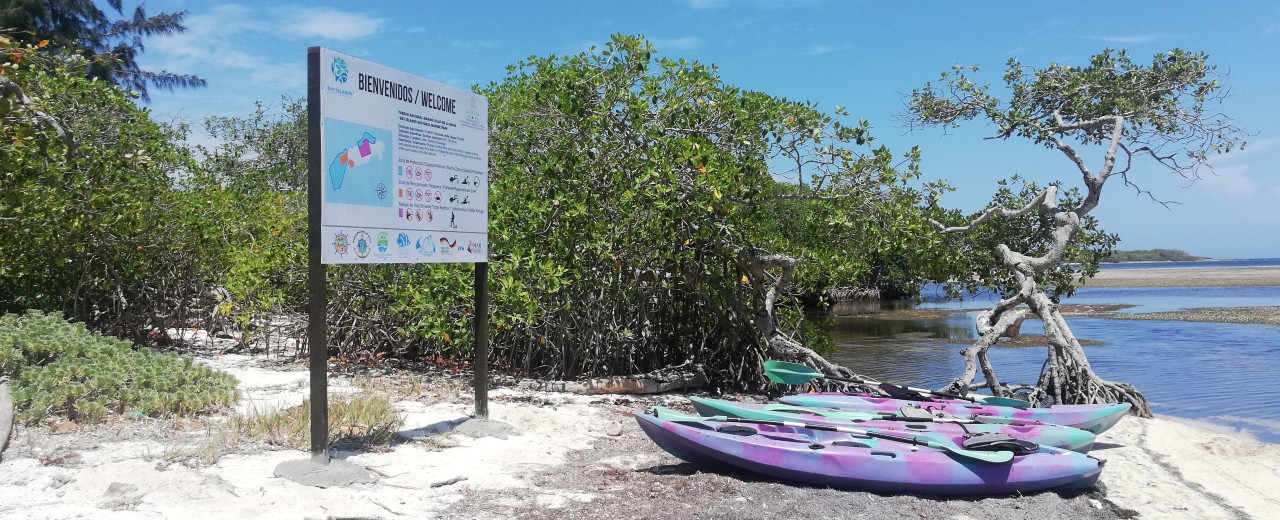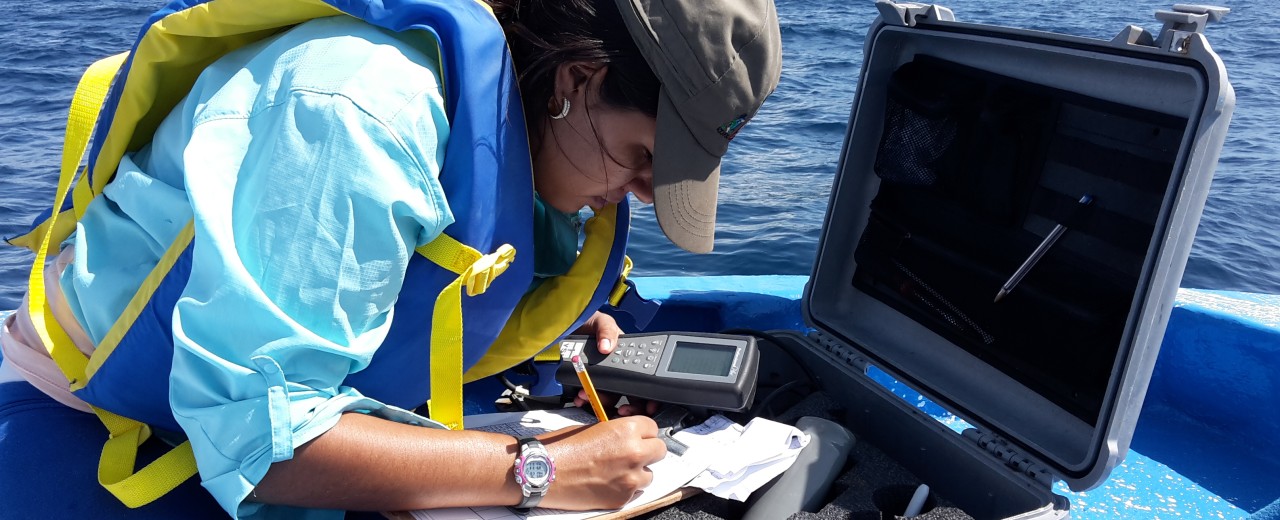
On behalf of the German Federal Government, KfW is supporting conservation of the Mesoamerican Reef by promoting and cooperating with the Mesoamerican Reef Fund (MAR Fund) on four projects. An evaluation shows that the fund was able to achieve its goals to a large extent. The area of mangrove forests and seagrass beds in the nine promoted conservation areas remained intact. KfW’s independent evaluation team assessed parts of the projects as “successful” and other parts as “moderately successful”.
The Mesoamerican Reef spans about 1,000 kilometres off the coasts of Mexico, Belize, Guatemala and Honduras, making it the longest coral reef in the world to cross the borders of multiple countries. Up to 4,000 different species live among the corals and in the marine ecoregion as a whole. The reef is one of the world’s biodiversity hotspots. Dolphins, manta rays, sea turtles and starfish can be found here, as well as countless species of crabs, sponges, worms and algae. However, overfishing, inefficient conservation area management, inadequate budget allocation and, not least, climate change are contributing factors in the massive reef’s destruction. Corals in particular suffer from ocean warming and acidification. Around two million people live in the Mesoamerican Reef region, about half of them live from products of the reef.
The Mesoamerican Reef Fund (MAR Fund) was established in 2005 and is financed by several donors, of which Germany is currently the largest donor. KfW has implemented several projects on behalf of the German Federal Ministry for Economic Cooperation and Development (BMZ) since 2010. On the one hand, it contributes to foundation capital, the yields from which finance conservation efforts for the coral reef and ensure the fund’s sustainability. On the other hand, it provides support by financing investment measures to strengthen the conservation area. The intergovernmental partner for the projects is the Central American Integration System (SICA) and the Central American Commission for Environment and Development (CCAD).
To effectively utilise the MAR Fund’s financial resources, KfW’s promotional efforts have thus far focused on nine of the around 70 conservation areas in the ecoregion. Up to 20 further conservation areas will be added in the medium term.
Financing conservation activities through a fund-supported charitable trust has the advantage of being continuous and sustainable. The evaluation showed that the foundation capital was profitably invested so the capital yields were available to finance the fund’s activities.

The evaluation team stressed the fact that, as a sole measure, using the MAR Fund to finance conservation measures is insufficient to preserve the Mesoamerican Reef. Political will and initiative will also be necessary to support conservation efforts. The evaluation team suggested that the Fund should strive to better integrate policymakers by making public appearances at conferences, for example. Overall, the team evaluated the fund’s financial activities as “successful” (rating 2) and the consolidation of supported conservation areas as “moderately successful” (rating 3).
KfW continues to consider its involvement useful and, on behalf of the Federal Ministry for Economic Cooperation and Development (BMZ), is promoting investment measures in conservation areas in a third phase for a further five years starting in 2022 with a grant of EUR 13 million. The aim of this project is conservation and the sustainable use of natural resources in and around the selected coastal and marine conservation areas of the Mesoamerican Reef ecoregion. Expectations are that around 20,000 people will directly benefit. Cooperation with further nature conservation foundations in the region has already been intensified. The intent is also to further support cooperation between the four participating governments as this is the only way to ensure effective conservation of the vast coral reef and its rare species.
The major advantages of the MAR Fund lie in its cross-regional approach – conservation of the massive reef only makes sense if all surrounding nations work together. There are also benefits from the continuity of the provision of funds, which the charitable trust ensures, and not least in the expertise that distinguishes the MAR Fund as an important actor for marine conservation.
Ex post evaluation – Central America Mar Fund
Learn more about our evaluations here.
Share page
To share the content of this page with your network, click on one of the icons below.
Note on data protection: When you share content, your personal data is transferred to the selected network.
Data protection
Alternatively, you can also copy the short link: https://www.kfw-entwicklungsbank.de/s/enzBYIjz
Copy link Link copied